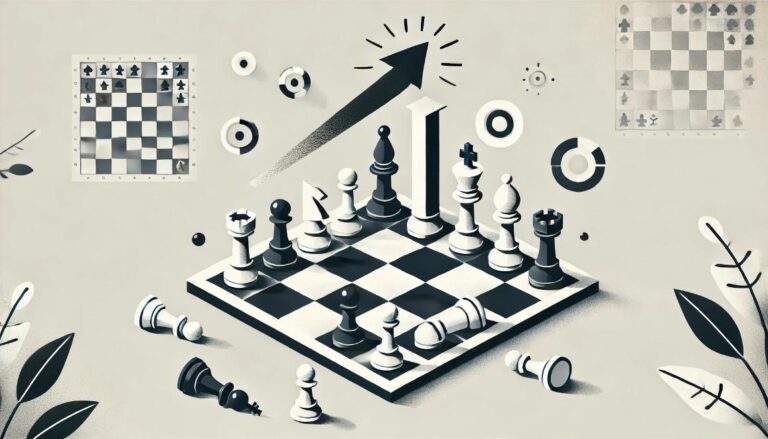Introduction
Chess is a strategic board game that has been played for centuries. Its origins can be traced back to the 6th century in India and has evolved over time to become a worldwide phenomenon. The game is played by two players and consists of 64 squares on a checkered board. Each player has 16 pieces, including a king, queen, bishops, knights, rooks, and pawns. The ultimate objective of the game is to capture the opponent´s king, known as checkmate, while protecting your own king from being captured. Chess is not just a simple game; it is a mental battle, often referred to as the “game of kings.”
Develop Strategic Thinking
The primary goal of chess is to develop strategic thinking. The game requires players to plan their moves ahead of time and anticipate their opponent´s next move. It teaches individuals to think critically and make decisions based on logical reasoning rather than emotions. With each game, players improve their strategic thinking skills, becoming better at predicting their opponent´s moves and choosing the best move to counter them.
Chess is often compared to a real-life battle, where each move can have significant consequences. In a military or business setting, strategic thinking is crucial for making critical decisions and achieving success. Hence, chess is not just a game; it is a valuable tool for developing strategic thinking skills that can be applied in various aspects of life.
Develop Problem-Solving Skills
Another essential goal of chess is to develop problem-solving skills. As players navigate the game, they are faced with various challenges and obstacles to overcome. Whether it´s an opponent´s unexpected move or a tricky position, players must come up with creative solutions to outmaneuver their opponent. The game encourages individuals to think outside the box and find innovative ways to overcome obstacles.
Chess is a game of endless possibilities, and no two games are ever the same. This unpredictability forces players to constantly think on their feet and adapt to changing circumstances. Such problem-solving skills are also valuable in real life, where individuals may encounter unexpected challenges that require them to think quickly and find effective solutions.
Improve Concentration and Focus
Playing chess requires intense concentration and focus. With each move, players must analyze the board, assess their options, and make calculated decisions. It may seem like a simple task, but with the added pressure of competing against an opponent, it can be mentally exhausting. However, with practice and discipline, players can train their minds to focus for extended periods, ultimately improving their concentration skills.
In today´s world, where distractions are abundant, the ability to concentrate is a crucial asset. Chess can help individuals hone their concentration skills and maintain focus for more extended periods, making them more productive in various aspects of life. Moreover, the mental exercise that comes with playing chess can also contribute to better cognitive function and memory.
Promote Sportsmanship and Character Development
Lastly, one of the most significant goals of chess is to promote sportsmanship and character development. Chess is not just a game of skill; it also requires sportsmanship and integrity. Players must follow the rules, respect their opponent, and accept defeat gracefully. Chess teaches individuals to be humble in victory and gracious in defeat.
Through chess, players can learn valuable life lessons such as patience, perseverance, and self-control. It also helps individuals build confidence in their abilities and learn from their mistakes. Chess players must also be able to think in their opponent´s shoes, which can foster empathy and understanding.
In conclusion, the goal of chess goes beyond winning the game; it is about developing essential life skills such as strategic thinking, problem-solving, concentration, and sportsmanship. Whether played for leisure or in a competitive setting, chess offers countless benefits that can impact individuals both on and off the board.

